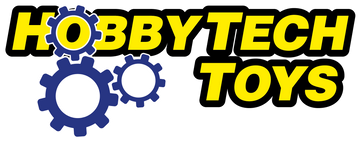RC car motors are essential components that power remote-controlled (RC) cars, providing the mechanical force necessary to propel the vehicle forward or backward. Here's an overview of RC car motors:
1. Types of RC Car Motors:
-
Brushed Motors: Brushed motors are the traditional type of RC car motor, featuring brushes and a commutator to transfer electrical power to the motor's armature. They are relatively simple and cost-effective but tend to have lower efficiency and lifespan compared to brushless motors.
-
Brushless Motors: Brushless motors utilize electronic commutation instead of brushes and a commutator, resulting in higher efficiency, power, and durability. They are the preferred choice for high-performance RC cars due to their superior performance and longevity.
-
Sensored vs. Sensorless Brushless Motors: Sensored brushless motors feature additional sensors for smoother startup and throttle response, making them ideal for racing applications that require precise control. Sensorless brushless motors, on the other hand, do not require sensors and are often used in bashing or general-purpose RC cars.
2. Motor Specifications:
-
Turns: In brushed motors, "turns" refer to the number of wire windings around the motor's armature. Lower turn counts generally result in higher speed but lower torque, while higher turn counts provide more torque but lower speed. In brushless motors, turns are not applicable, and instead, the motor's Kv rating is used to indicate its speed characteristics.
-
Kv Rating: The Kv rating of a brushless motor represents its RPM (revolutions per minute) per volt under no load. A higher Kv rating indicates a faster motor, while a lower Kv rating signifies more torque but lower speed. Kv ratings are typically specified in RPM per volt (e.g., 3000 Kv means the motor will rotate at 3000 RPM for every volt applied).
-
Size: RC car motors come in various sizes to fit different scales and applications. Common sizes include 540, 550, and 1/8 scale motors, with larger motors providing more power but also requiring additional space and weight.
3. Performance and Features:
-
Power and Torque: RC car motors vary in power output and torque capabilities, with higher-end motors delivering more power for increased speed and acceleration. Torque is essential for overcoming obstacles and climbing inclines, particularly in off-road or crawling applications.
-
Efficiency: Brushless motors are generally more efficient than brushed motors, resulting in longer run times and cooler operation. Efficient motors also translate to better overall performance and battery life.
-
Durability: Brushless motors are known for their durability and resistance to wear and tear, making them ideal for demanding applications such as racing and bashing. Quality brushed motors can also be durable but may require periodic maintenance and brush replacement.
4. Compatibility and Installation:
-
RC car motors should be compatible with the specific make and model of the RC car, taking into account factors such as chassis design, gearing, and power requirements.
-
Installation typically involves mounting the motor onto the car's chassis, connecting it to the ESC (Electronic Speed Controller), and ensuring proper gear mesh for efficient power transmission.
5. Motor Maintenance:
-
Regular maintenance is essential to ensure optimal performance and longevity of RC car motors. This may include cleaning, lubricating bearings, checking for wear, and replacing worn-out components as needed.
-
Brushed motors may require periodic brush replacement, while brushless motors generally require less maintenance but may benefit from occasional cleaning and inspection.
Choosing the right RC car motor depends on factors such as intended use, performance requirements, and budget. High-quality motors from reputable manufacturers offer reliability, performance, and durability, ensuring an enjoyable RC driving experience.

